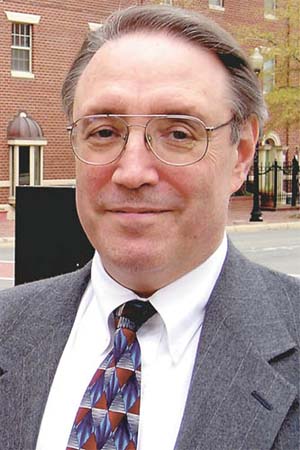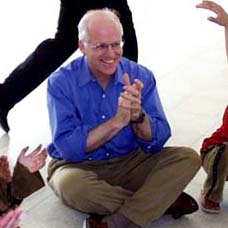2006.08.23: August 23, 2006: Headlines: COS - Brazil: Staff: Medicine: Crime: Pain: Washington Post: Conviction of William E. Hurwitz overturned
Peace Corps Online:
Peace Corps News:
Peace Corps Library:
Medicine:
January 23, 2005: Index: PCOL Exclusive: Medicine :
March 24, 2005: Headlines: COS - Brazil: Medicine: Crime: Pain: Richmond Times Dispatch: U.S. District Judge Leonard D. Wexler yesterday refused to grant bail to Dr. William E. Hurwitz, who in December was convicted of 50 charges stemming from a three-year federal investigation into the illegal distribution of medications :
2006.08.23: August 23, 2006: Headlines: COS - Brazil: Staff: Medicine: Crime: Pain: Washington Post: Conviction of William E. Hurwitz overturned
Conviction of William E. Hurwitz overturned

The Richmond-based U.S. Court of Appeals for the 4th Circuit acknowledged that prosecutors presented "powerful" evidence at Hurwitz's trial that was "strongly indicative of a doctor acting outside the bounds of accepted medical practice." Hurwitz was convicted in December 2004 of running a drug conspiracy from his McLean office, causing the death of one patient and seriously injuring two others. But a three-judge panel concluded that U.S. District Judge Leonard D. Wexler improperly told jurors that they could not consider whether Hurwitz acted in "good faith" when he prescribed large amounts of OxyContin and other painkillers -- in one instance, 1,600 pills a day. Hurwitz was a former volunteer medical director for the Peace Corps in Brazil in the 1970's.
Conviction of William E. Hurwitz overturned
Conviction Of McLean Pain Doctor Overturned
Appeals Court Says Judge Erred in Jury Instructions
By Jerry Markon
Washington Post Staff Writer
Wednesday, August 23, 2006; Page B01
A federal appeals court threw out the conviction of William E. Hurwitz yesterday, granting the prominent former Northern Virginia pain-management doctor a new trial because jurors were not allowed to consider whether he prescribed drugs in good faith.
The decision again galvanized the national debate that the Hurwitz case had come to symbolize: whether fully licensed doctors prescribing legal medication to patients in chronic pain should be subject to prosecution if their patients abuse or sell the drugs. Patient advocate groups strongly supported Hurwitz and expressed concern that his conviction would have a chilling effect on pain doctors.
The Richmond-based U.S. Court of Appeals for the 4th Circuit acknowledged that prosecutors presented "powerful" evidence at Hurwitz's trial that was "strongly indicative of a doctor acting outside the bounds of accepted medical practice." Hurwitz was convicted in December 2004 of running a drug conspiracy from his McLean office, causing the death of one patient and seriously injuring two others.
But a three-judge panel concluded that U.S. District Judge Leonard D. Wexler improperly told jurors that they could not consider whether Hurwitz acted in "good faith" when he prescribed large amounts of OxyContin and other painkillers -- in one instance, 1,600 pills a day.
"We cannot say that no reasonable juror could have concluded that Hurwitz's conduct fell within an objectively-defined good-faith standard," the judges wrote, adding that Hurwitz presented evidence that he ran a legitimate medical practice and believed that his prescriptions were "medically proper."
Patient and medical advocates hailed the decision. "It's about time that courts start to realize that these are doctors, not drug dealers," said Kathryn Serkes, a spokeswoman for the Arizona-based Association of American Physicians and Surgeons.
The ruling sends the case back to U.S. District Court in Alexandria for another trial. Hurwitz's attorney, Marvin D. Miller, said the "good faith" argument ran to the core of Hurwitz's defense because "he believed what he was doing was helping patients with their pain."
"My colleagues on the other side overreached in this case and tried to exert federal control over the practice of medicine," Miller added.
James Rybicki, a spokesman for U.S. Attorney Chuck Rosenberg, said prosecutors are reviewing the decision and "studying our options on how to proceed." The government could appeal to the entire 4th Circuit or the U.S. Supreme Court.
Hurwitz was perhaps the most prominent physician targeted in a federal crackdown on the abuse of OxyContin and other painkillers. His conviction capped a three-year investigation into doctors, pharmacists and patients suspected of selling potent narcotics and fueling an epidemic that ravaged Appalachia and triggered other crimes.
Prosecutors portrayed Hurwitz as a common drug dealer whose waiting room was filled with sleeping and incoherent patients with track marks on their arms. More than 20 former patients of Hurwitz's testified at the trial; most had been convicted of drug crimes. Defense attorneys portrayed Hurwitz as a caring and courageous doctor who put his patients' welfare above his own.
Jurors convicted Hurwitz on 50 counts of a 62-count indictment, including conspiracy to distribute controlled substances. They acquitted him on nine counts and deadlocked on three. Hurwitz was sentenced to 25 years in prison.
When this story was posted in November 2006, this was on the front page of PCOL:





Peace Corps Online The Independent News Forum serving Returned Peace Corps Volunteers
 | Harris Wofford to speak at "PC History" series
Senator Harris Wofford will be the speaker at the 4th Annual "Peace Corps History" series on November 16 sponsored by the University of Maryland at Baltimore County (UMBC) and the Maryland Returned Volunteers. Previous speakers in the series have included Jack Vaughn (Second Director of the Peace Corps), Scott Stossel (Biographer of Sargent Shriver), and C. Payne Lucas (President Emeritus of Africare). Details on the time and location of the event are available here. |
 | Chris Dodd's Vision for the Peace Corps
Senator Chris Dodd (RPCV Dominican Republic) spoke at the ceremony for this year's Shriver Award and elaborated on issues he raised at Ron Tschetter's hearings. Dodd plans to introduce legislation that may include: setting aside a portion of Peace Corps' budget as seed money for demonstration projects and third goal activities (after adjusting the annual budget upward to accommodate the added expense), more volunteer input into Peace Corps operations, removing medical, healthcare and tax impediments that discourage older volunteers, providing more transparency in the medical screening and appeals process, a more comprehensive health safety net for recently-returned volunteers, and authorizing volunteers to accept, under certain circumstances, private donations to support their development projects. He plans to circulate draft legislation for review to members of the Peace Corps community and welcomes RPCV comments. |
 | He served with honor
One year ago, Staff Sgt. Robert J. Paul (RPCV Kenya) carried on an ongoing dialog on this website on the military and the peace corps and his role as a member of a Civil Affairs Team in Iraq and Afghanistan. We have just received a report that Sargeant Paul has been killed by a car bomb in Kabul. Words cannot express our feeling of loss for this tremendous injury to the entire RPCV community. Most of us didn't know him personally but we knew him from his words. Our thoughts go out to his family and friends. He was one of ours and he served with honor. |
 | Chris Shays Shifts to Favor an Iraq Timetable
In a policy shift, RPCV Congressman Chris Shays, long a staunch advocate of the Bush administration's position in Iraq, is now proposing a timetable for a withdrawal of American troops. How Mr. Shays came to this change of heart is, he says, a matter of a newfound substantive belief that Iraqis need to be prodded into taking greater control of their own destiny under the country’s newly formed government. As Chairman of the House Government Reform subcommittee on national security, he plans to draft a timetable for a phased withdrawal and then push for its adoption. A conscientious objector during the Vietnam War who said that if drafted he would not serve, Chris Shays has made 14 trips to Iraq and was the first Congressman to enter the country after the war - against the wishes of the Department of Defense. |
 | Peace Corps' Screening and Medical Clearance
The purpose of Peace Corps' screening and medical clearance process is to ensure safe accommodation for applicants and minimize undue risk exposure for volunteers to allow PCVS to complete their service without compromising their entry health status. To further these goals, PCOL has obtained a copy of the Peace Corps Screening Guidelines Manual through the Freedom of Information Act (FOIA) and has posted it in the "Peace Corps Library." Applicants and Medical Professionals (especially those who have already served as volunteers) are urged to review the guidelines and leave their comments and suggestions. Then read the story of one RPCV's journey through medical screening and his suggestions for changes to the process. |
 | The Peace Corps is "fashionable" again
The LA Times says that "the Peace Corps is booming again and "It's hard to know exactly what's behind the resurgence." PCOL Comment: Since the founding of the Peace Corps 45 years ago, Americans have answered Kennedy's call: "Ask not what your country can do for you--ask what you can do for your country. My fellow citizens of the world: ask not what America will do for you, but what together we can do for the freedom of man." Over 182,000 have served. Another 200,000 have applied and been unable to serve because of lack of Congressional funding. The Peace Corps has never gone out of fashion. It's Congress that hasn't been keeping pace. |
 | PCOL readership increases 100%
Monthly readership on "Peace Corps Online" has increased in the past twelve months to 350,000 visitors - over eleven thousand every day - a 100% increase since this time last year. Thanks again, RPCVs and Friends of the Peace Corps, for making PCOL your source of information for the Peace Corps community. And thanks for supporting the Peace Corps Library and History of the Peace Corps. Stay tuned, the best is yet to come. |
 | History of the Peace Corps
PCOL is proud to announce that Phase One of the "History of the Peace Corps" is now available online. This installment includes over 5,000 pages of primary source documents from the archives of the Peace Corps including every issue of "Peace Corps News," "Peace Corps Times," "Peace Corps Volunteer," "Action Update," and every annual report of the Peace Corps to Congress since 1961. "Ask Not" is an ongoing project. Read how you can help. |
Read the stories and leave your comments.

Some postings on Peace Corps Online are provided to the individual members of this group without permission of the copyright owner for the non-profit purposes of criticism, comment, education, scholarship, and research under the "Fair Use" provisions of U.S. Government copyright laws and they may not be distributed further without permission of the copyright owner. Peace Corps Online does not vouch for the accuracy of the content of the postings, which is the sole responsibility of the copyright holder.
Story Source: Washington Post
This story has been posted in the following forums: : Headlines; COS - Brazil; Staff; Medicine; Crime; Pain
PCOL35063
44



















